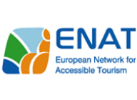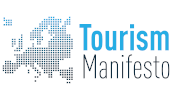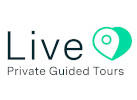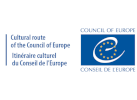FEG ExCo Deputy & FEG Trainer
Accessible Tourism for All
It has been more than a year now since the Covid-pandemic started and all countries around the world have felt its impact on an economic and social level. Restrictions on travel, closed borders, countries placed on “red lists”, were a wake-up call for most people who took tourism and the ability to travel freely for granted.
For a large segment of the world’s population though, the ability to travel freely cannot be taken for granted. These are the-1-in-5 people around the world who are directly affected by disability, most of them acquiring it as adults. For these millions of potential travellers, the reality is what Zurab Pololikashvili, the Secretary General of UNWTO, describes: “Tourism environments and services are often designed without considering the different access requirements that visitors and locals may have.”
Tourist guides offer a service that is expected to meet the needs and abilities of all their clients. This service should be accessible, enjoyable and easy to understand for as many individuals as possible. This service is referred to as Inclusive Tourist Guiding and is aimed not only to people with disabilities but to any visitor who might have access needs and is affected by problems in mobility, sight, hearing, perception, attention and comprehension.
The European Federation of Tourist Guide Associations (FEG) is committed to Accessible Tourism, through partnerships with organisations such as the European Network for Accessible Tourism (ENAT) and Pantou, an open resource for tourism suppliers. Furthermore, FEG offers training courses to its members such as Tourism For All and T-Guide – Guiding People with Learning Difficulties and has produced this useful Accessibility Checklist for tourist guides.
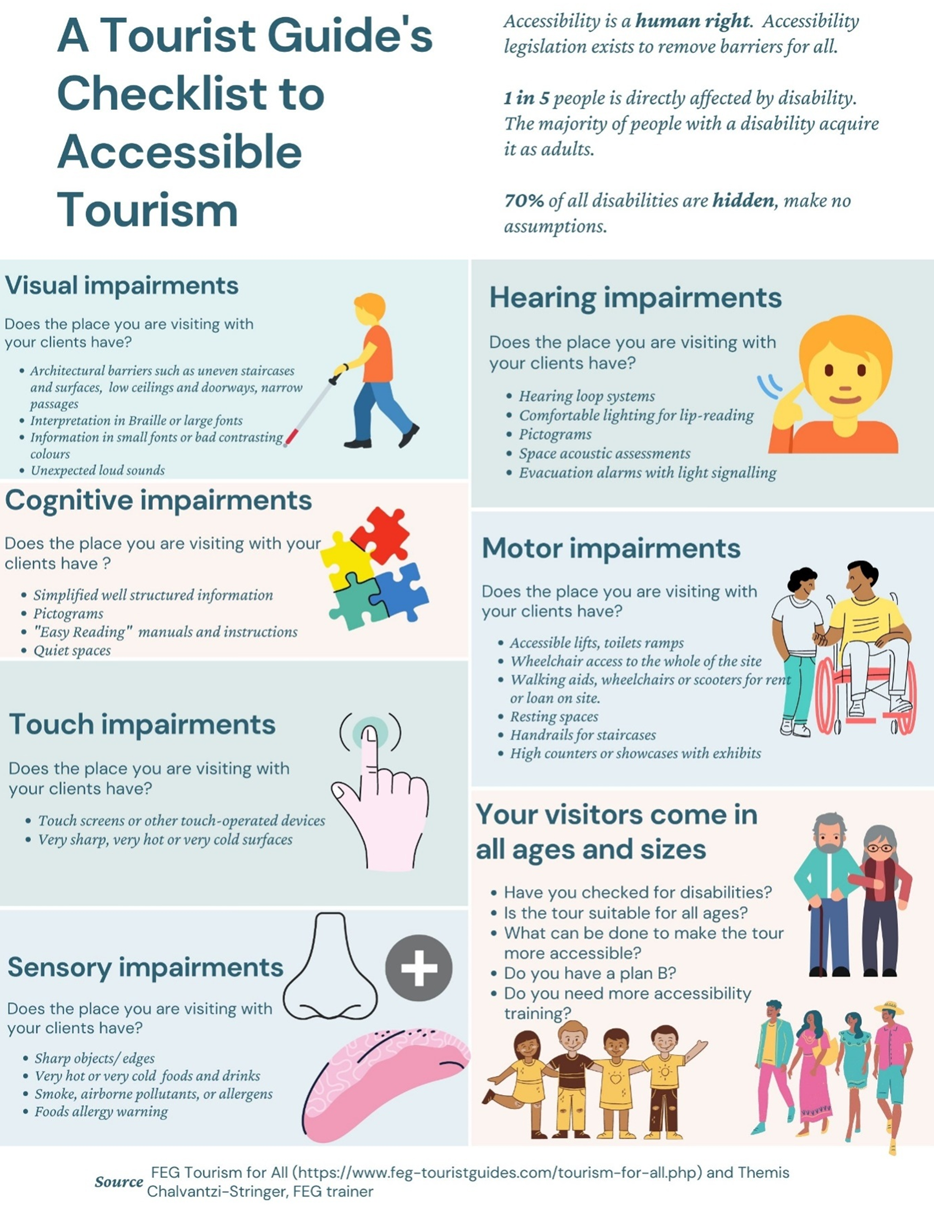 Accessible Tourism Checklist © FEG, Themis Halvantzi-Stringer
Accessible Tourism Checklist © FEG, Themis Halvantzi-Stringer
As the world’s population grows older and tourism patterns change to include multigenerational families travelling together, tourist guides need to adapt their service offerings. We may not be able to address every personal set of needs and requirements and we are not expected to be disability experts. We are experts, though, in customer service and, through learning and training, we can offer accessible and enjoyable tours to all.
Note: The Checklist can be used as a reminder for some of the accessibility requirements for different impairments and is by no means exhaustive. If you require more information on training provided by FEG please contact training@feg-touristguides.org
By Themis Chalvantzi-Stringer, FEG accredited trainer, certified T-GUIDE





